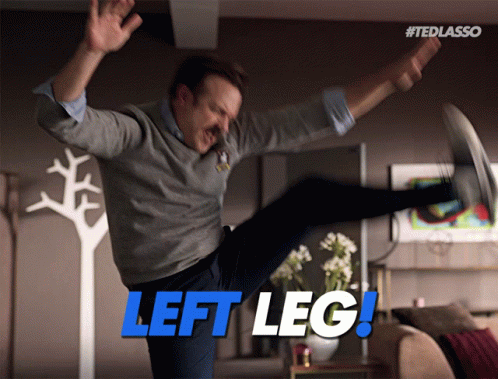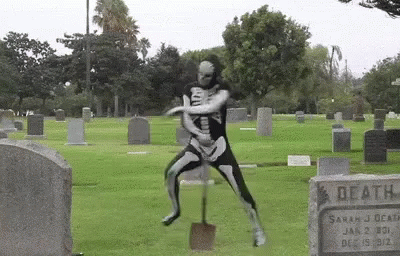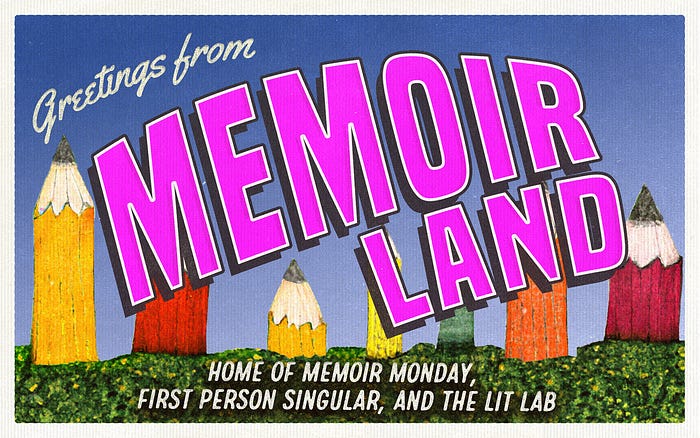“Non-Compete” Clause for Life

At the gym, the coach sometimes divides us into teams to compete against each other for the workout. I hate those days with a blistering passion. I’m usually the slowest, the “weak link.” It reminds me of high school gym class and always getting picked as one of the last options. My teammates often have to wait for me. Sometimes, we lose because of me. (This usually means some sort of ‘punishment’ in the form of burpees or push-ups like we’re at fucking boot camp.) I’ve been going to the gym 4–5 times a week for 8 months and am still one of the slowest and weakest. I was so pissed about that the other day that I cried while running, sweat and tears dripping down my red-hot face.
As I walked out defeated, one woman high-fived me and said: “Hey, you’re doing great! We only compete against ourselves! See, how far you’ve come already!”
The kind gesture delivered with the best of intentions only made me more mad. I didn’t realize why until the end of the day.
When I started looking at my perfectionistic tendencies a few years ago, I learned that more than wanting to be the best ever, I just wanted to be better than the people around me. I turned over that big mossy rock and found lots of slimy jealousy and judgment and superiority and competitiveness underneath. Slimy not because it’s outrageous that I had very human feelings and hang-ups, but because I hid them and pretended they weren’t real.
It took actual yeeeears to stop the constant comparison with other people and that helped me feel a little less like I was in a 24/7 race. But what I didn’t realize was that I mostly just took all that competitive spirit and need for superiority and transferred it from other people onto myself. For some reason, I considered comparing myself to versions of me from yesterday or 5 years ago, as more enlightened:
I don’t compare myself to others. I only compete against myself. I just want to be better/wiser/smarter/stronger than I was yesterday. I would tell myself this garbage and feel proud of being so evolved.
I didn’t understand why I still felt shitty.
Later that day, I remembered a conversation with a good friend who asked me to institute a “non-compete clause.” These are contractual terms that forbid a person from competing with a previous employer. However, my friend used it as shorthand to remind me that I wasn’t in competition with anyone else, in any aspect of my life, not even myself.
My mouth hung open as I sat at the table, staring out the window when the realization dropped. I’d finally arrived at the moment when I no longer wanted to be in competition with myself. Not when I thought I shouldn’t be, but when I actually felt it in my bones.
I remembered the Friday before Memorial Day when I completed the Murph Challenge at my gym (run a mile, 100 pull-ups, 200 push-ups, 300 squats, run another mile). For a decade this challenge has been completed on or around Memorial Day in memory of Navy SEAL Michael Murphy who was killed in Afghanistan in 2005. I didn’t wear a weighted vest to simulate body armor. I did band-assisted pull-ups and knee push-ups and broke up the reps into 20 rounds, but I finished. During the last few hundred meters of running, I started laughing uncontrollably while listening to “I Want More” by Kaleo. (And then I broke into a sprint and nearly slammed into the door of my gym.) It was the closest to a runner’s high I’d ever experienced. Hef and Mike, my coaches, high-fived me as I burst through the door, congratulating me on finishing.
Immediately, I launched into how I hadn’t done it the “right” way. It deflated my runner’s high and sucked the joy out of a moment that was pure elation a second earlier. As I was talking shit about myself, I realized:
I don’t want to do this anymore.
Of course, it’s not just about the gym. The same goes for how I show up at work, in my relationships, and in my creative pursuits.
There is no such thing as continuous improvement, growth, and progress — it’s just futile straining against death.

Instead of striving for a constant linear upwards trajectory, I want to walk at my own pace on a winding road. Being rather than performing. Doing rather than just thinking about doing. Experiencing first, analyzing second. This doesn’t mean I no longer feel competitive. It just means that now, more often than not, I ask myself:
What do I really want to do in this moment (“nothing” being a valid option), rather than what would be considered an accomplishment?
I don’t want to be better. I just want to be more myself.

One beautiful thing I’ve read about this practice of living in my body and experiencing it as it is, rather than expecting it to always perform better than yesterday or the person next to me, is this poem by Andrea Gibson: For The Days I Stop Wanting A Body. Below are some of the lines I love the most, but be sure to read the whole poem.
Imagine when a human dies the soul misses the body
Actually grieves the loss of its hands
And all they could hold
Misses the throat closing shy
Reading out loud on the first day of school
When a human dies
The soul searches the universe for something blushing
Something shaking in the cold
Something that scars
Sweeps the universe for patience worn thin
The last nerve fighting for its life
The voice box aching to be heard
Do you understand
Nothing in space can imagine it
No comet
No nebula
No ray of light can fathom the landscape of awe
The heat of shame
The fingertips pulling the first grey hair
And throwing it away
“I can’t imagine it.”
The stars say
“Tell us again about goosebumps.
Tell us again about pain.”

“Who are you when you’re not trying to impress other people?” is the title Christopher and Heather, hosts of the podcast Virgin.Beauty.Bitch. gave the episode they invited me on to discuss my HuffPost article “My Mom Would’ve Been Thrilled To Know I Was Queer. Instead, I Stayed Closeted For 25 Years.”
It’s not lost on me that an article and podcast interview that were going to focus on identity, turned out to circle back again to one of the major threads weaving through my life: competition, the need to impress others or be liked/useful/acceptable/superior instead of being myself.
“You sound just like your mother!” Christopher exclaimed halfway through the interview and I didn’t recoil. It was no longer an insult. I don’t need to prove anymore that I’m better than her. I’m not. We’re different in some ways and alike in others.
He was correct in pointing out that my mother just wanted to be free, just like I’m trying to be. Free from labels and terms and phrases that are catchall words in our culture — wo/man, feminine/masculine, straight/gay, wife/husband—but say so little about who we truly are. And worse, these terms also create competition inside of me. Do I live up to the standard of what’s considered acceptably feminine? Do I measure up to our cultural ideals of what it means to be a good wife/partner/daughter/sister? And on and on.
And so, instead, I remind myself of Mary Oliver’s words in Wild Geese:
“You do not have to be good. You do not have to walk on your knees for a hundred miles through the desert repenting. You only have to let the soft animal of your body love what it loves.”

A huge YAY before I wrap this up. In my last newsletter, I asked for your help in suggesting my Rumpus essay Speaking Ill of the Dead for inclusion in MemoirLand and Longreads.

Thank you to anyone who Tweeted, Emailed, Facebooked, and Instagrammed my story and got it featured in both!!!
Thank you for valuing my writing enough to take the time out of your day to do this for me. It was and is a big deal to me and I appreciate your help!

Member discussion